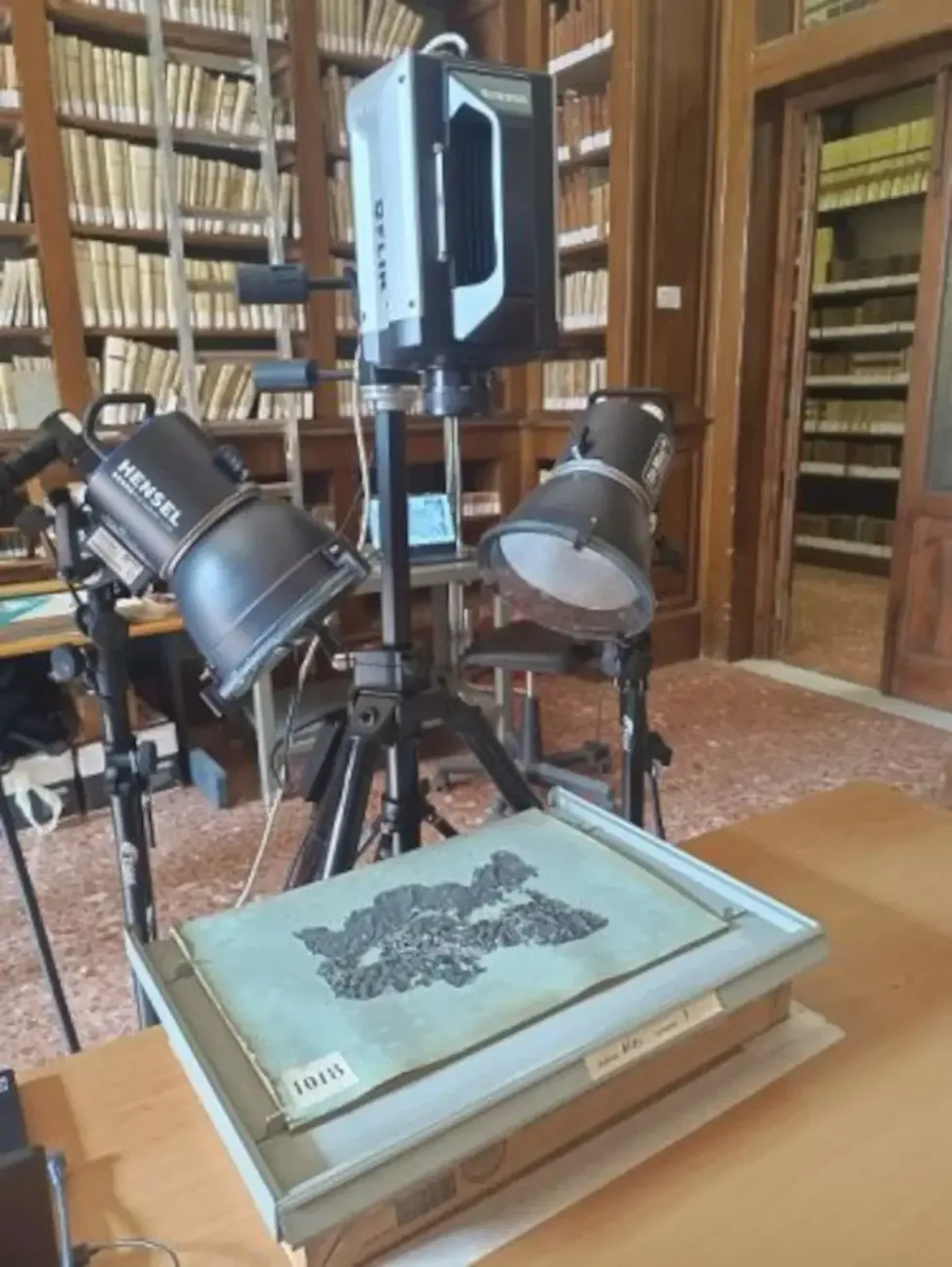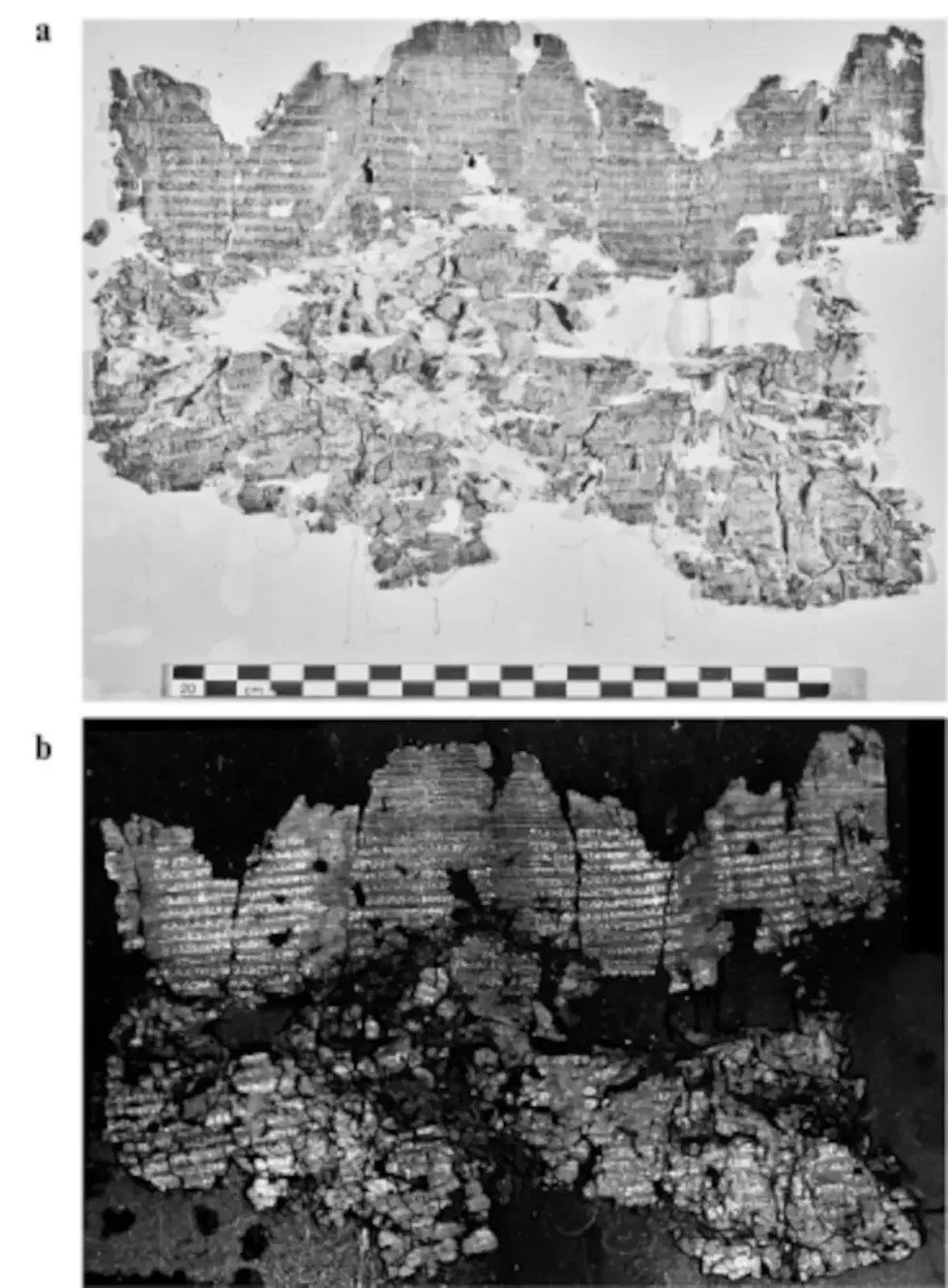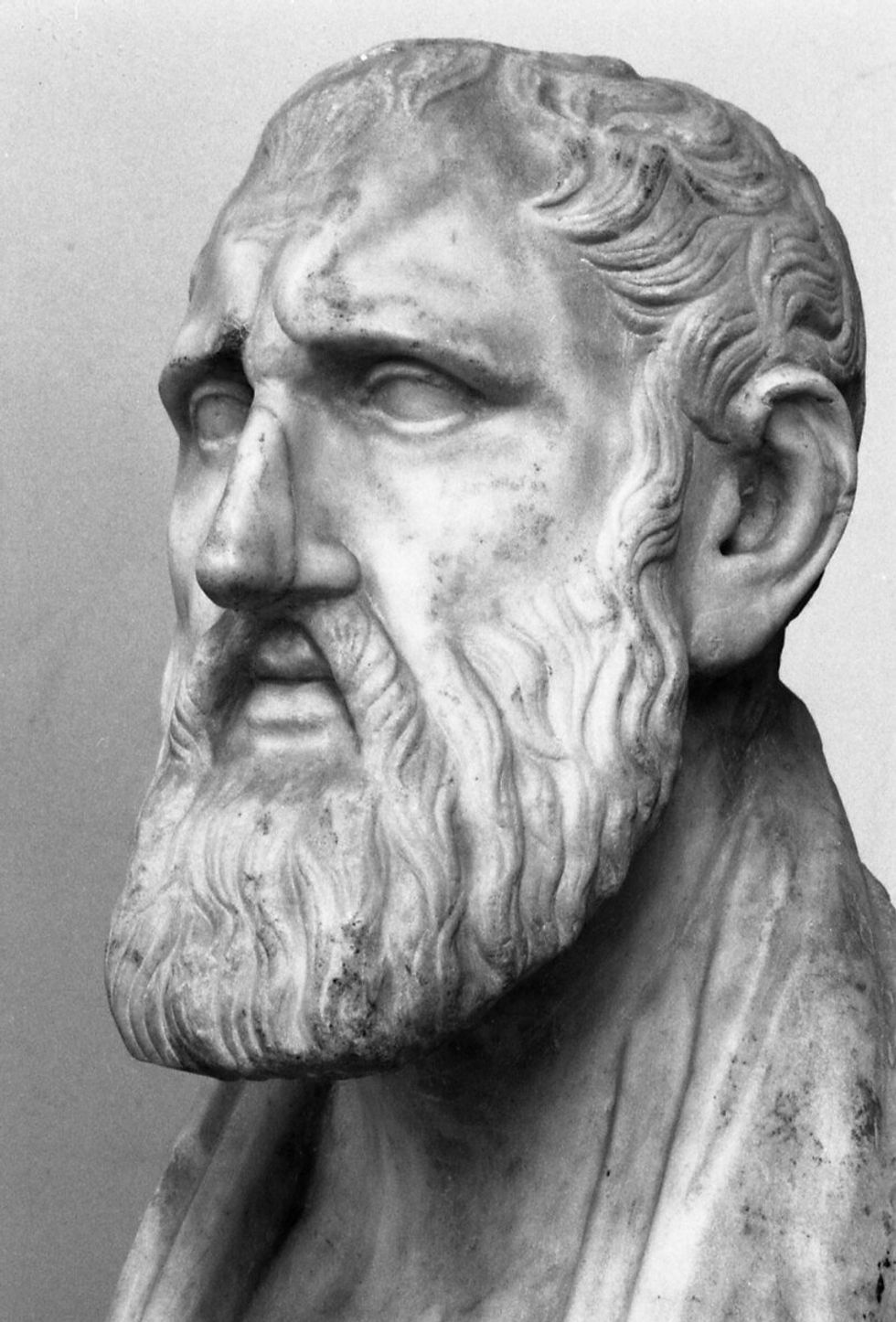Archaeologists stunned as secrets of long-lost Pompeii decoded for first time in 2,000 years

Scandalous details of an ancient scroll thought have been lost to time have finally been revealed
Don't Miss
Most Read
Italian scientists have deciphered part of an ancient scroll rendered unreadable by the eruption of Mount Vesuvius nearly 2,000 years ago.
A charred papyrus fragment of manuscript managed to survive the fires of Pompeii in the Villa dei Papiri at Herculaneum, a luxurious coastal estate believed to have been owned by Julius Caesar's father-in-law.
When volcanic ash and gases engulfed the settlement, the villa's collection became "carbonised" without actually burning.
The papyrus documents transformed into fragile black carbon tubes after their exposure to the extreme heat.
But for centuries, the scrolls were indecipherable.
TRENDING
Stories
Videos
Your Say
The blackened ink and carbonised papyrus showed no discernible contrast, while efforts to unfurl them resulted in many crumbling to powder.
However, a new approach has discovered what was inside.
Scientists flashed a momentary burst of light, known as pulsed thermography, to very slightly raise the material's temperature while thermal cameras tracked how fast different parts of the papyrus cooled.
Since ink and papyrus dissipate heat differently, the long-lost text emerged as luminous patterns.
This method, borrowed from aerospace technology, causes no harm to the delicate manuscripts.

PICTURED: Scientists flash a momentary burst of light, known as pulsed thermography, to very slightly raise the material's temperature
|CNR
The results have shed light on the provocative teachings of Greek philosopher Zeno of Citium, whose writings on reason and resilience shaped Roman elites and leaders like Cicero and Marcus Aurelius - and went on to underpin modern Western thought.
But the newly accessible text, an excerpt from Philodemus of Gadara's "The History of the Stoa", has revealed parts of Zeno's personal life which his successors found deeply uncomfortable.
It provides uncommon insights into Zeno's personal characteristics, depicting him as a Phoenician immigrant to Athens who suffered from physical weakness due to poor nutrition.
He lived an isolated existence bordering on hostility towards others, and endured mockery for his non-native pronunciation.
LATEST ARCHAEOLOGY HEADLINES:

By scanning the paprus, scientists shed light on the provocative teachings of Greek philosopher Zeno of Citium
|CNR
Graziano Ranocchia from the University of Pisa, who directed the research, revealed how Philodemus and Zeno's followers saw his work as "morally questionable, since it recommends social and sexual practices regarded as embarrassing".
The "embarrassing" concepts included abolishing the institution of private matrimony and traditional family structures.
Zeno, a Cypriot, advocated for the collective sharing of romantic partners within communities.
His vision promoted complete gender equality and endorsed open homosexual relationships.

Zeno's (pictured) radical teachings were unacceptable in ancient Athens, the new research found
|WIKIMEDIA COMMONS
He also imagined an ideal society of wise individuals governed solely by rational thought, functioning without currency, judicial systems or material possessions.
These radical notions were unacceptable in ancient Athens, and challenged fundamental aspects of Greek society.
As a result, his followers went on to suppress these aspects of their founder's teachings.
Nevertheless, Zeno's influence remained so profound that he was granted him the exceptional honour of a state funeral, a rarity for a foreigner.











